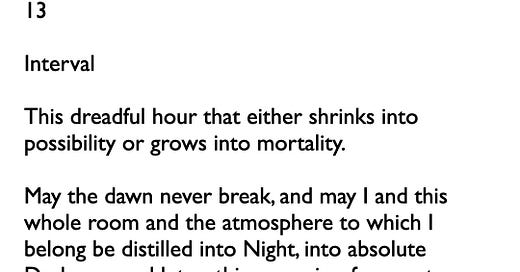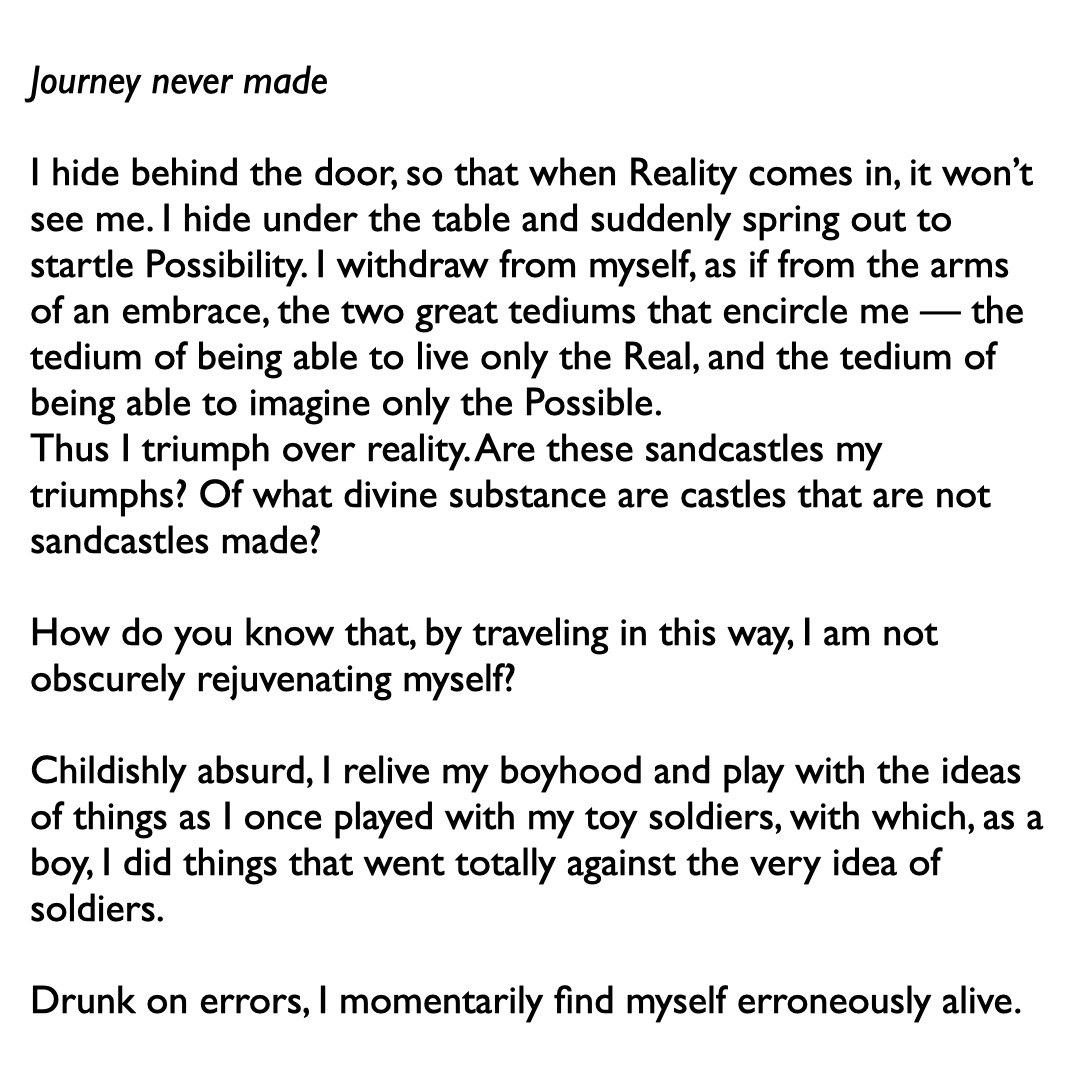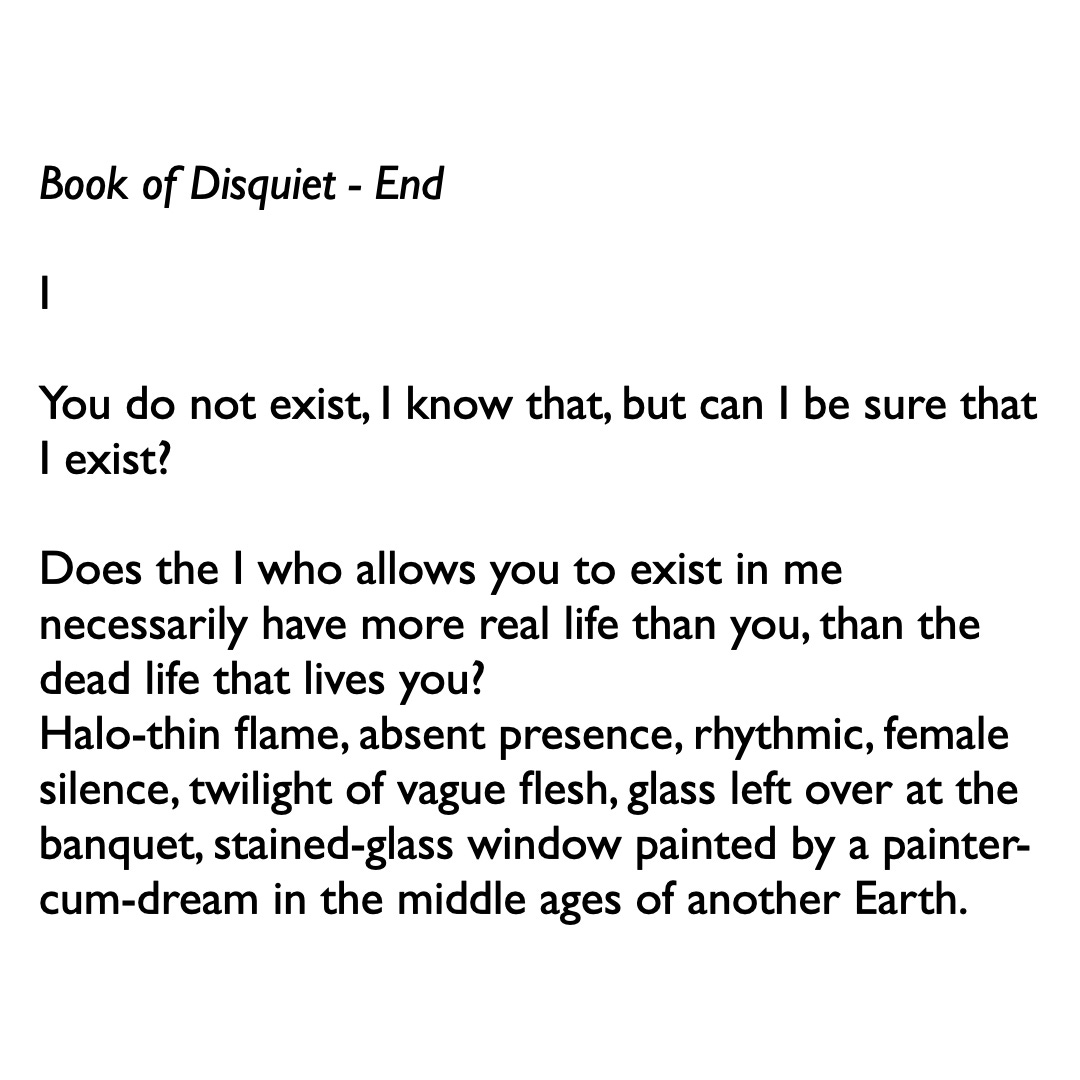In 1969, the wordwitch Georges Perec wrote a lipogrammatic novel in French without using the letter ‘e’ even once. It was originally written in French, Gilbert Adair simulated this feat in English, retaining the writer’s wordplay. The book, whose English title is A Void, told the story of a mysterious disappearance. This whodunnit engages with questions of loss and a gathering sense of incompletion.
"The absence of a sign is always the sign of an absence, and the absence of the E in A Void announces a broader, cannily coded discourse on loss, catastrophe, and mourning. Perec cannot say the words père ["father"], mère ["mother"], parents ["parents"], famille ["family"] in his novel, nor can he write the name Georges Perec. In short, each "void" in the novel is abundantly furnished with meaning, and each points toward the existential void that Perec grappled with throughout his youth and early adulthood. A strange and compelling parable of survival becomes apparent in the novel, too, if one is willing to reflect on the struggles of a Holocaust orphan trying to make sense out of absence, and those of a young writer who has chosen to do without the letter that is the beginning and end of écriture ["writing"]."
From Reading Georges Perec, Context, Dalkey Archive Press.
Perec’s era was a lost adolescent in the city’s wilderness - a landscape only just beginning to take form. The literary modernists walked in the ravaged hallways of eternity looking wistfully towards the light, longing for completion. The existential gash was tended to with the artists who came after, and their self-referential bravura bled some masterpieces. A Void is perhaps a formal celebration of that sense of loss that plagued Perec, and finds breath in most of his works. Indeed, his literary oeuvre spanned a variety of linguistic experiments. His life and work echoed a schism of constrained zest that is characteristic of the times we seem to be living in.
It’s ironic, don’t you think that this particular kind of affliction has become a global catastrophe? We could have had tsunamis, melting icecaps (this is where we’re headed, unless we act now), or even zombies, but first we are forced to experience social distancing, a discipline which our apps, and our simulacra, have been training us in, for decades now.
In a world hurtling towards social disconnectedness, reimagining narratives of connection and interfaces of kindness, and searching, again, for the sounds of the crowd, the experience of absolution is always something else, or someone else.
The critic who assumes completeness, embodies a kind of narcissism.
The golden ratio is a mathematical myth that only sometimes encloses reality.
For everything else, there’s poetry.
The artist sutures reality with carefully constructed fictions the way a caterpillar heals the morning, its gnashing jaws knitting a leaf with the promise of wings.
“…a landscape is a state of mind, but the phrase is the feebly felicitous one of a feeble dreamer. A landscape is a landscape and therefore cannot be a state of mind. To objectify is to create and no one says of a finished poem that it is a state of thinking about writing a poem. To see is perhaps to dream but if we use the word “see” rather than the word “dream,” it’s because we distinguish between seeing and dreaming. […] It would be more accurate to say that a state of mind is a landscape; that would have the advantage of containing not the lie of a theory but the truth of a metaphor.”
From Fernando Pessoa’s The Book of Disquiet
Pessoa wrote about incompleteness, too. He designed the perfect solution for a creative vision that refused to be caught in the straitjacket of a single identity.
Pessoa’s many selves are fascinating expressions of the contrasting impulses that were born out of his own fragmented experiences. His many heteronyms (not simply pseudonyms, but authors with distinct voices, histories and character pegs) were movements - not musical, but philosophical. They sometimes even had public literary debates with each other. Pessoa’s imagination of the self, and its relationship with the world is fascinating. It is an ever changing landscape - the more you try to bring it into focus as a reader, the more it eludes you. Many of his characters define themselves by rejection, they are, like Perec’s wordgames, Absent Presents.
The Book of Disquet is a work of prose that was never meant to be completed. With regard to this work, the master poet considered any presumption of completeness, wholeness, or perfect consummation, a kind of cowardice. He left instead a trunk of fragments that many editors have tried to put together, with some success. The passage quoted above is from this complex work which begins with Bernardo Soares (one of his heteronyms) introducing the work as a kind of autobiography, collected and edited by him, of a fictitious person. This is a fragment of Soares's description of this astounding character, Vincent Guedes, whose thoughts are recorded in this book.
Vicente Guedes endured his empty life with masterly indifference, the foundations of his mental attitude being built on the stoicism of the weak.
He was constitutionally condemned to suffer all kinds of anxieties, but fated to abandon them all. I never met a more extraordinary man. He had abdicated everything to which he was by nature destined, but not out of any kind of asceticism. Though naturally ambitious, he savoured the pleasure of having no ambitions at all.
This is my reading of authorship. Critics are still divided as to whether this was Pessoa’s unfinished autobiography, for instance. I prefer to read The Book of Disquiet as a co-authored work by Soares and Guedes (there are two distinct ‘phases’). Nevertheless the persona is important, only in its tenancy of thought, and more importantly, dream.
Are you wondering now, what an ‘absurd sphinx’ is? Here.
Pessoa returns to the act of dreaming again and again in this book. Like the Surrealists he imagined the dream as a component of the (de)construction of identity, and of the tangible soul. He also returns to the idea of the absurd, like any existentialist slob worth his salt. Note, ‘Detachment and Inertia’ are simply the masks of this curious individual.
The tone is often of advice, like a manual. But a manual that is upside down, and written in invisible ink with the pages having to be put together after a sudden wind scattered them. Still, the fragments exist as individual thought capsules, letters to the future. Sometimes the persona is wistful, an aesthetic construction of ‘what ifs?’ and coy mistakes.
But as Pessoa, himself observes, there is a ‘symphonic certainty’ in these works. One of my favourite fragments is actually one of the book’s many ‘ends’. It appears in most publications somewhere in the middle, a kind of love note. It lingers gently on the question of existence, and truth. It embodies a desire that is very much Pessoa’s stated vision of self-belief, a self that is birthed with denial of the perceived real. Then that self is denied, in a cascade of continuous liberations.
As Pessoa dreamt of ‘another earth’ with the indifference of ‘delight and rest’, it is nice to listen. Don’t you think?
If you haven’t read The Book of Disquiet, I highly recommend it. It is one of those books that you can open anywhere, and Pessoa is a genius who I wish I could sit and discuss all my disquiet with. Really.
If the poetry, and the commentary, resonate with you, do consider ‘buying me a coffee’. (Matlab, if you can’t, that’s also fine, obviously. This is a free newsletter)
Note: Those, not in India, who’d like to support the work I do at Poetly, do write to me - poetly@pm.me. (Paypal seems to have left the building, still figuring it out)
Thanks for reading Poetly! Do subscribe if you are not reading this in your inbox. Cheers!










